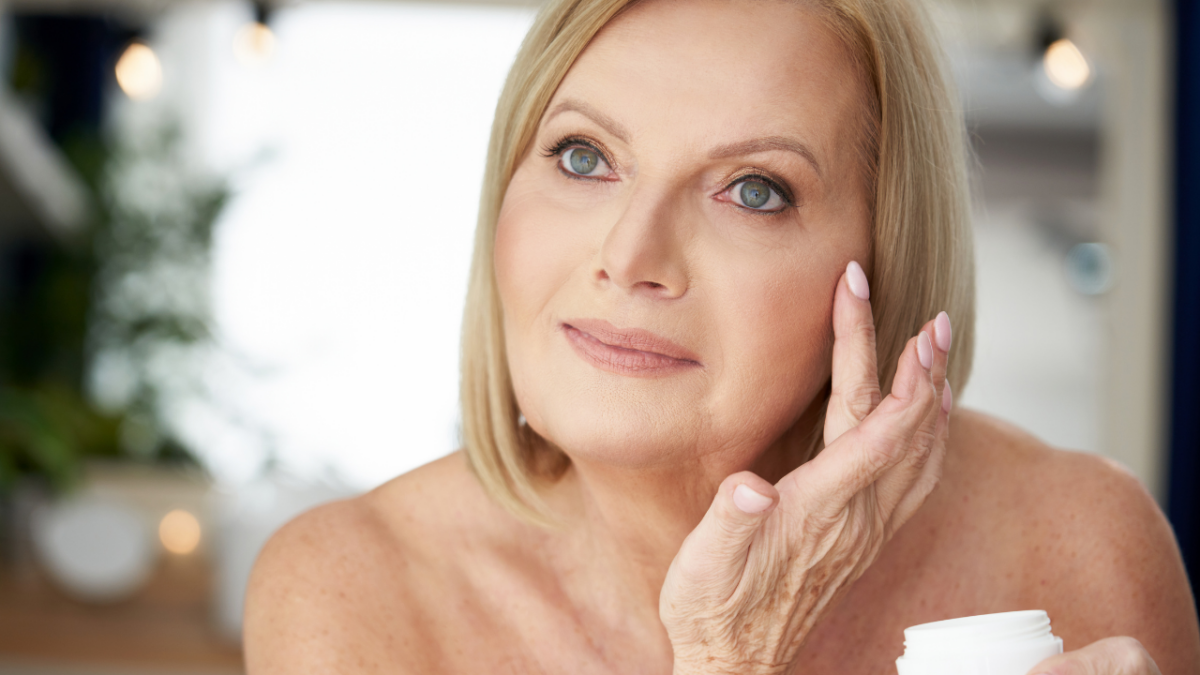4 Powerful Ways to Keep Your Skin Youthful After Menopause

Menopause brings various changes to a woman’s body, and one of the most noticeable is its impact on the skin. Within the first five years post-menopause, women can lose up to 30% of their skin’s collagen thickness. This collagen reduction can lead to visible signs of aging, including thinner skin, fine lines, and reduced elasticity. Fortunately, there are effective ways to help maintain and even improve collagen production, keeping skin looking healthier and more vibrant. Here’s a detailed guide to four essential methods for protecting and rejuvenating skin after menopause.
1. Prioritize Protein Intake to Support Collagen Production
Collagen is the protein responsible for the structure, strength, and elasticity of the skin. But, collagen production is a lot slower in our body as we age, especially after menopause. To combat this loss, make sure to consume plenty of healthy sources of protein needed to make collagen.
You get your essential amino acids from the protein-heavy dietary sources available to you that your body uses to create collagen: lean meats and fish only or eggs or plant alternatives, such as lentils and quinoa and tofu, for one. And, second, pure collagen itself, also a massive protein, your body utilizes jack-diddly squat of whatever protein-rich foods it absorbs to build itself up as good as it can. Initially, just add good proteins in any food being prepared to make sure that proper development starts from inside.
Key Tip:
Aim to include a protein source in every meal, ideally one that contains a variety of amino acids to support overall skin health.
2. Consider Adding a Hydrolyzed Collagen Supplement
While some skeptics argue that collagen supplements aren’t beneficial, recent studies suggest that hydrolyzed collagen supplements can indeed support skin health. Hydrolyzed collagen is broken down into smaller, more easily absorbed peptides, making it easier for the body to utilize. Research indicates that these supplements may help increase skin hydration, elasticity, and overall collagen density.
Taking a daily hydrolyzed collagen supplement can be a simple yet effective way to enhance skin resilience. When shopping for collagen supplements, look for high-quality, pure formulations that are free from unnecessary additives or fillers. These supplements are usually available as powders that can be mixed into smoothies or drinks, making them easy to integrate into your daily routine.
Key Tip:
Choose a trusted brand with proven quality, and give it a few months to notice visible improvements in skin texture and firmness.
3. Use Peptide Creams to Stimulate Collagen Production
Peptide creams have gained popularity for their ability to promote collagen production directly on the skin. Peptides are short chains of amino acids that act as cellular messengers, signaling the skin to create more collagen and elastin. Using a peptide-based moisturizer or serum can help improve skin texture, increase firmness, and reduce the appearance of fine lines.
When shopping for peptide creams, look for formulations that combine peptides with hydrating ingredients like hyaluronic acid, which helps lock in moisture and supports a plumper, more youthful appearance. Regular application, especially after cleansing, can keep your skin looking more supple and resilient.
Key Tip:
Apply peptide creams twice daily, focusing on areas prone to sagging or wrinkles, like the face, neck, and hands, for best results.
4. Talk to Your Doctor About Hormone Replacement Therapy (HRT)
Hormone Replacement Therapy (HRT) is an option that some women consider to manage menopause symptoms, and it can also offer skin-related benefits. Research suggests that HRT can help slow down collagen loss, especially if started early in the menopausal transition. By balancing hormone levels, HRT may mitigate some effects of estrogen loss, which plays a key role in maintaining skin thickness and elasticity.
If you’re interested in HRT, it’s essential to consult with a qualified healthcare provider to understand the benefits, risks, and which types might be appropriate for you. For some women, HRT can be a game-changer in addressing not only skin health but other menopause-related symptoms as well.
Key Tip:
Discuss HRT as part of a broader skin and wellness strategy with your healthcare provider. This personalized approach can help ensure you’re making informed choices for your long-term health.
Additional Tips to Support Skin Health After Menopause
- Hydrate: Drinking plenty of water supports cellular health and can help keep skin hydrated.
- Avoid Smoking and Excessive Sun Exposure: Both can degrade collagen, speeding up skin aging.
- Incorporate Antioxidants: Vitamin C serums and foods rich in antioxidants, like berries and leafy greens, help protect collagen from free radical damage.
Final Thoughts
Menopause is a natural transition, and it’s normal for our skin to reflect these life changes. But with a proactive approach, you can help maintain your skin’s health, texture, and resilience. From dietary choices to skincare and professional therapies, there are numerous ways to support collagen production and keep your skin looking vibrant. Embrace this phase as an opportunity to focus on self-care and long-term skin health, knowing that with the right strategies, you can continue to feel confident and radiant at any age.
